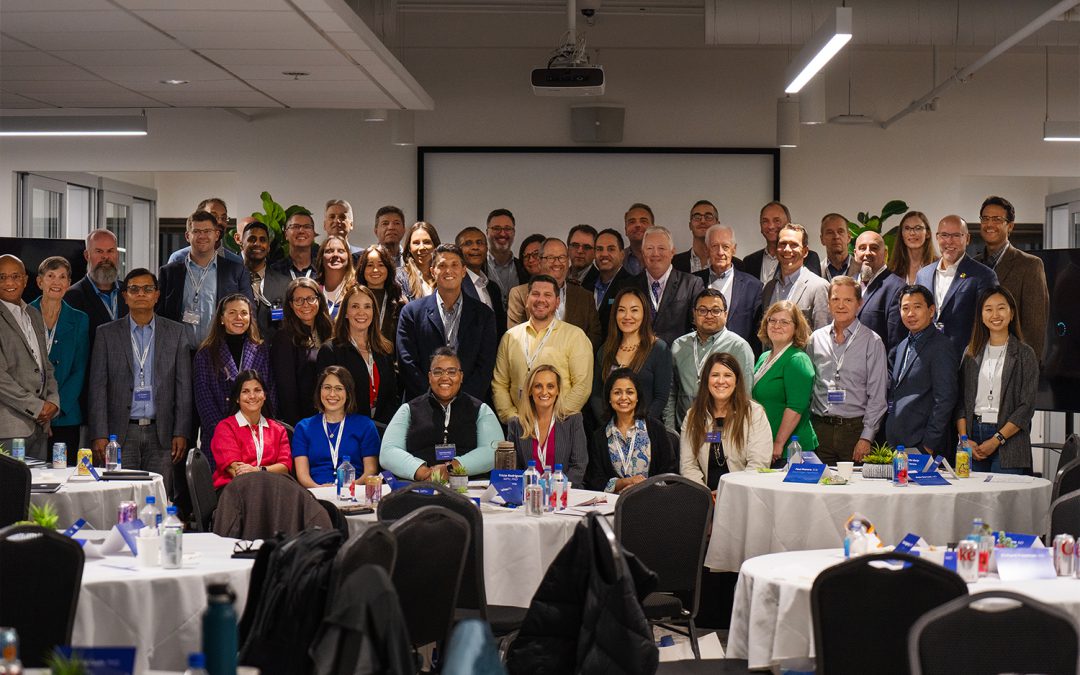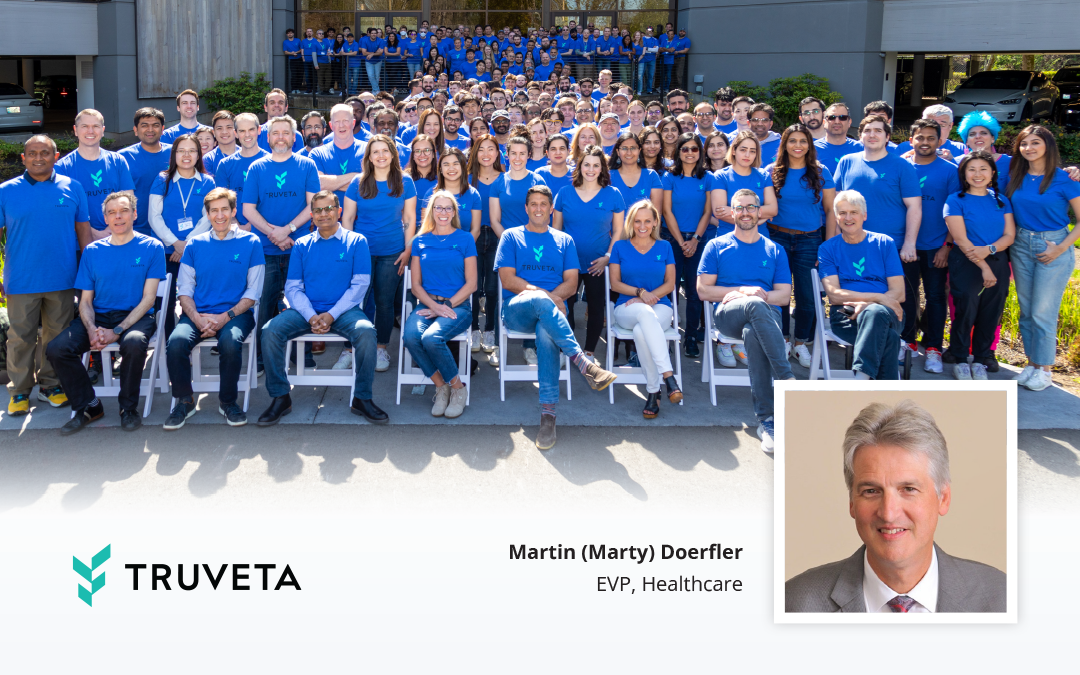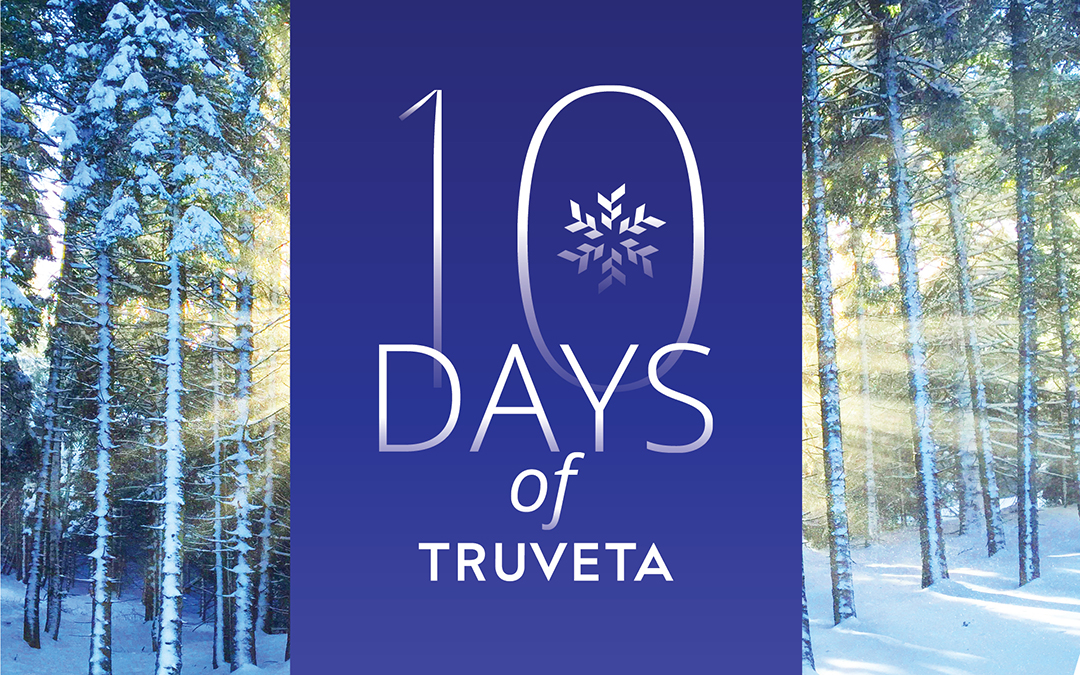I was debating about whether to join Truveta and leave an amazing 23-year career at Microsoft when I found out my dad had bladder cancer.
As many diagnoses are, it was shocking. My dad has always been the rock of our family. The strongest man I know. A lifelong hard worker, he was a high school counselor, cattle farmer, and real estate agent – all at the same time – in our small town in Missouri. He is also well-known for his generosity, sense of humor, and storytelling. Along with my mom, he has always been my biggest cheerleader.
With the uncertainty of his diagnosis worrying me (along with a host of other factors), I wondered if it was the right time to take on start-up life. As he has my entire life, he encouraged me to go for it. Dream big. Make it happen. He has believed in me, always.
So, I joined Truveta officially in September 2020. At the same time, my dad has valiantly fought bladder cancer – bravely, stoically, and so far, successfully. It is very lonely to have cancer during a pandemic, and it was quite sad to not be able to safely visit him when all I wanted to do was give him a big hug. As soon as we were able to get fully vaccinated, my first trip was to my favorite destination – my hometown. I have never hugged my parents tighter.

Picture from our first reunion post-COVID vaccination
Honoring National Cancer Research Month
May is National Cancer Research month. The American Association for Cancer Research (AACR) initiated this month to highlight the importance of lifesaving research to the millions of people around the world affected by cancer. It is amazing to consider that thanks to incredible advances in cancer research, nearly 17 million people in the U.S. alone are living, through, and beyond their disease.
One of the things I have come to appreciate about working in healthcare is that it truly affects each of us. Seeing my dad benefit from cancer research leading to life-saving treatments has made me so very grateful for the researchers, clinicians, nurses, and other caregivers who are literally saving lives.
Bladder Cancer: The Sixth Most Common Cancer in the US
It may surprise you, as it did me, that bladder cancer is the sixth most common cancer in the U.S. and ninth most common worldwide. In 2017, there were 550,000 new cases of bladder cancer globally and 200,00 deaths. About 75% of new cases and deaths occur in men – we don’t know why.
The good news – if caught early, the 5-year relative survival rates for patients with tumors restricted to the inner layer within the bladder are 96%, thanks to the incredible advances in treatments. The rates drop to 34% for those with disease that has spread locally beyond the bladder and to 5% for patients with distant metastases.
Due to his proactivity and excellent care, my dad was fortunate to catch his bladder cancer early.
From Tuberculosis to Fighting Cancer
And then what? A cancer diagnosis is terrifying. My dad chose treatment at M.D. Anderson Cancer Center in Houston. While traditional treatments of bladder cancer have included surgery and chemotherapy, if caught early, they can be treated with immunotherapy. This is my dad’s treatment path. Gratefully, it is a highly effective form of treatment with minimal side effects.
In what is now my favorite label expansion example, Bacillus Calmette–Guérin (BCG) is the most widely used vaccine worldwide and has been used to prevent tuberculosis for a century. Researchers found BCG also stimulates an anti-tumor immune response, and in 1990, it became the first FDA-approved immunotherapy treatment. It helps reduce the risk of bladder cancer recurrence by stimulating an immune response that targets the bacteria as well as any nearby bladder cancer cells. Approximately 70% of bladder cancer patients go into remission after BCG therapy.
And, there is more to come. Investigational bladder cancer immunotherapies have the potential to further improve outcomes for patients. Recent research indicates that BCG could also offer additional protection against pathogens that cause non-mycobacterial and viral infections, like COVID-19.
It is simply incredible to me how this form of cancer research has made such a difference for my dad. I applaud the researchers for their discoveries to date and cheer on their future innovations.
A Chat with my Dad
My dad, Roger Brown, was gracious to answer a few questions for me about his path with bladder cancer and BCG treatment.
Lisa: What was it like getting your cancer diagnosis?
Dad: Most of us realize as we age, we know realistically there will be a time where you will get a diagnosis or issue that comes your way. Of course, we all prefer for it to be further down the road. But, we know it will happen to all of us.
Sidebar: My mom says, “We tend to think we’re in our 50s…so this was a surprise.” Dad’s response? “Your mom thinks she is middle aged. I ask her….how many people live to be 140???”
My biggest concern was for those who love me. Having gone through cancer with my own mother and dad, I know it is hard. I knew it would be a process, and I needed to get started on treatment, but mostly, I was worried for the impact on those I love.
Lisa: What was your prognosis?
Dad: The initial diagnosis from the urologist was optimistic – there were many things that could be done. It was not a walk off the cliff moment. It was great news the cancer was contained in the bladder lining and hadn’t spread to the muscle, so that led us to the best treatment to start.
Lisa: How has BCG treatment worked for you?
Dad: I received my first treatment in November 2020. The BCG is injected directly into the bladder with a catheter-type tubing. The first round of treatment included six treatments a week apart. Then, with medical scoping, blue-light analysis, and great care, I received a care plan for maintenance treatments, starting in February 2021 – a series of three treatments a week apart. I’m awaiting my next maintenance schedule for the next three rounds, ideally extending the time between treatments.
Lisa: Compared to other treatments, what have been the benefits of BCG?
Dad: The largest benefit is that it is working successfully with very few side effects. The side effects have been very minimal and certainly not as drastic as other treatment methods.
Lisa: You sadly watched both of your parents suffer from cancer. How do you think science has advanced since their diagnosis?
Dad: Cancer can be terrible, but the advancements in knowing how to help prevent, diagnose early, and treat humanely and successfully are incredible. My parents died from cancer (lung and prostate) in the mid-1990s. Since then, my experience with advancements in cancer treatment have been amazing. I am so grateful for the researchers and their continued advances in diagnosis, treatment, and monitoring, leading us to better methods for treatment.
Unprecedented Data for Researchers
The story comes full circle back to Truveta. My dad is one of many sources of inspiration to empower researchers and clinicians with more data, so they can learn more quickly and help more patients and families. The unprecedented data platform we are building will aid their discoveries, fueling new treatments and saving lives.
This past week two incredible things happened. First, I booked a trip home to see my family over Memorial Day. If COVID-19 has taught me anything, it is that when you see a window to visit those you love, you make it happen. Life is, indeed, short. And second, Truveta is in conversations with an early customer on how to advance….yes, treatment for bladder cancer.
I love you, Dad – may you live to 140 and beyond.
Lisa







